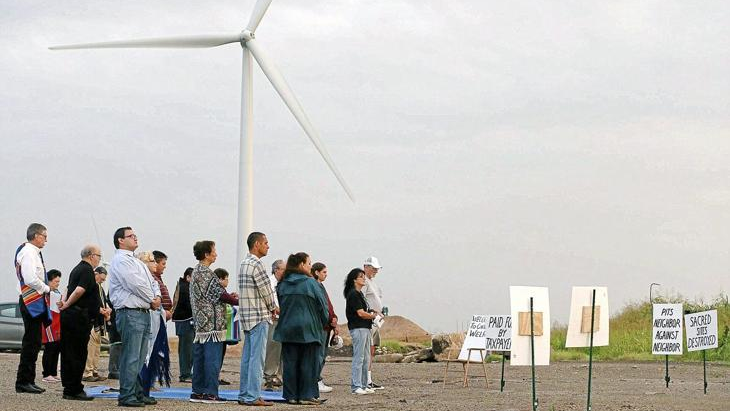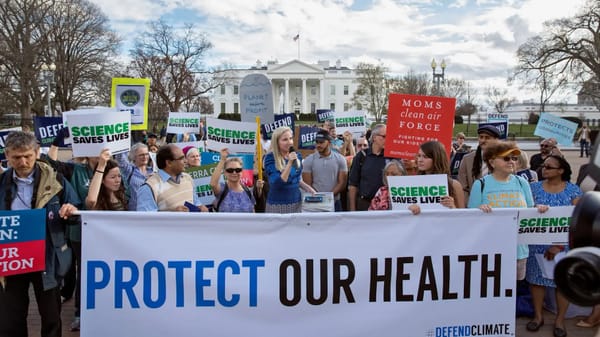Silence in the Wind—Why Corporate Media Overlooked the Osage Wind Farm Ruling
Failing to report on cases like the Osage Wind Farm ruling does more than obscure a significant legal precedent—it reinforces systemic inequities, diminishes Indigenous victories, and obscures the environmental and legal challenges tied to renewable energy development.

In a stunning legal resolution more than a decade in the making, Italian energy giant Enel has been ordered to dismantle the Osage Wind Farm in Osage County, Oklahoma. The ruling by the U.S. District Court for the Northern District of Oklahoma marked the culmination of litigation brought by the Osage Nation. The tribe argued that Enel violated federal law by extracting minerals without proper permits during construction. Despite the case’s implications for energy companies, indigenous rights, and environmental policy, the story has been largely overlooked.
Why has such a significant ruling been ignored? Is it due to the green energy context, the players involved, or a broader systemic bias? Let’s dig deeper.
The litigation stemmed from Enel’s decision to construct a 94-turbine wind farm on leased land. The Osage Nation asserted that excavating and using rock materials from the land violated their mineral estate rights under federal law. After years of legal back-and-forth, the court ruled in favor of the tribe, determining that the wind farm’s construction amounted to mining without permission—a violation of the 1906 Osage Allotment Act. This decision sets a precedent for respecting tribal sovereignty, underscoring that corporations operating on Native American land must follow federal laws governing mineral rights. Removing the wind farm represents a rare and decisive victory for indigenous groups. Yet, this landmark case barely made a ripple in mainstream news outlets.

Enel is a prominent player in the renewable energy sector, embodying the global push toward greener, more sustainable power. Reporting on the Osage Nation’s victory might complicate this narrative by highlighting unintended consequences and legal complexities of renewable energy development. Including expert commentary on these challenges could provide a more rounded perspective. It raises questions about whether corporate media intentionally avoids scrutiny of such sectors due to their perceived importance to climate goals.
The Osage Nation’s battle against a multinational corporation fits into a larger pattern: indigenous struggles for land and sovereignty often go unreported. Historically, corporate media has provided sparse coverage of Native American legal victories unless tied to high-profile protests like Standing Rock. This oversight perpetuates a lack of awareness about Indigenous rights and minimizes the broader implications of these cases.
Legal cases involving mineral rights, tribal sovereignty, and federal law aren’t easily digestible for the general public. The intricacies of the 1906 Osage Allotment Act or the details of excavation methods don’t lend themselves to soundbites or clickbait. Enel’s global footprint and economic influence could also play a role. Media outlets, often owned or influenced by corporations, may hesitate to publish stories critical of major companies that contribute to advertising revenue or align with broader pro-renewable energy agendas.
Failing to report on cases like the Osage Wind Farm ruling does more than obscure a significant legal precedent—it reinforces systemic inequities, diminishes Indigenous victories, and obscures the environmental and legal challenges tied to renewable energy development. Drawing connections to other underreported legal cases involving Indigenous rights could strengthen the article’s argument and provide additional context for readers. This lack of visibility perpetuates a broader disregard for tribal sovereignty and the struggles of marginalized communities battling corporate giants.
The Osage Wind Farm case should have sparked widespread discussion about the balance between renewable energy development and indigenous rights. Instead, its absence from the corporate media narrative leaves critical questions unanswered: How can we pursue green energy responsibly without trampling on legal and ethical boundaries? Who decides which stories are worthy of coverage, and at what cost?
The silence surrounding this case reminds media consumers to seek out diverse sources of information actively. Ensuring overlooked stories like this are amplified is crucial to fostering broader discussions about justice, sustainability, and accountability—not just within the context of green energy but across all industries.
This article is licensed under Creative Commons (CC BY-NC-ND 4.0), and you are free to share and republish under the terms of the license.
At DayMark News, we are committed to exposing the rise of authoritarianism and its threat to democracy. In a time when disinformation spreads like wildfire and democratic institutions face relentless attacks, we need your support to keep the fight alive.
Investigative journalism is our weapon against authoritarian ideologies. We delve deep to uncover the truths others would rather keep hidden, while providing actionable resources to empower individuals like you to defend our democracy.
We believe in transparency, integrity, and the power of a well-informed public. But maintaining a platform dedicated to fearless reporting and mobilization requires resources. We refuse to bow to corporate interests or compromise our mission. That's why we turn to you — our community.
Every donation, big or small, helps us continue our work. With your support, we can produce the in-depth analyses, breaking news, and educational tools needed to resist the rise of extremist movements and protect democratic values for future generations.
This fight belongs to all of us. Together, we can ensure that democracy not only survives but thrives. Please consider making a contribution today to keep DayMark News strong and independent.
Donate Now: Because Democracy Can't Defend Itself.

 Donate
Donate



